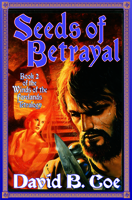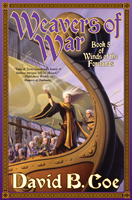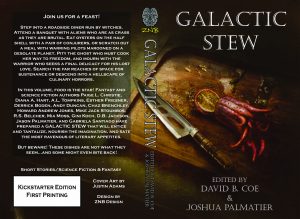Welcome to my new Wednesday blogging feature, Professional Wednesdays. As some of you may remember, back around Thanksgiving I asked you for advice on the future of my midweek posts. My Writing-Tip Wednesdays were well received throughout 2020, but by the end of the year I was struggling to come up with new advice topics. I became convinced that I couldn’t sustain that old format for another year without repeating myself.
What I suggested in that Thanksgiving week post was a new, related feature — Professional Wednesdays — that would combine a few disparate ideas: a professional journal discussing current projects and struggles and epiphanies; more generalized musings on the market, the craft, and others elements of creative life; a few advice posts, as I think of topics I failed to cover in 2020; and my responses to the storytelling components of books, movies, TV shows, and other artistic endeavors I encounter.
This catch-all idea for the blog received a lot of enthusiastic support from those of you who commented, and so here we are. In the coming months, I’ll be sharing with you all sorts of posts touching on professional issues, creativity, and “behind the scenes” looks at my own works-in-progress as they develop. I hope you enjoy this new approach to my Wednesday posts.
To start off 2021, I would like to share with you some news and how it relates to something I did on New Year’s Day — something I do every New Year’s Day.
Let’s start with the news. 2020 was a fairly quiet year for me professionally (no, THAT’S not news. Be patient…). I was pretty productive, especially given the circumstances, but the year was somewhat light on professional news. Until the very end of the year…
News item number 1: I have signed a contract for a pair of supernatural thrillers, the first of which I expect will be coming out late in 2021. The first book is written, but needs to be revised. The second book is in its conceptual phase. I expect to write it this spring. I am not ready to reveal who will be publishing the books except to say that it is a highly respected small press, a house I’ve wanted to work with for some time. Details to come as soon as the last of the “t”s and “i”s are crossed and dotted.
News item number 2: We have artwork for the Thieftaker novellas, and it now looks like the first of those novellas should be out sometime later this winter. And the artwork? It’s by Chris McGrath. Yep. The same Chris McGrath who did the artwork for all four of the original Thieftaker novels. It is magnificent.
News item number 3: Speaking of the original Thieftaker novels, we have gotten the rights reverted on the third and fourth Thieftakers, A Plunder of Souls and Dead Man’s Reach. These are books that came out after my editor debacle at Tor, and as a result neither book ever received the TLC and attention it deserved. Well, Lore Seekers Press has reissued the books, with the original artwork, in ebook format and (forthcoming very soon) in trade paperback. If you have yet to read these novels, this is the time to get them, before the new Thieftaker novellas come out. They are among my favorites of all the novels in any series I’ve ever written. Dead Man’s Reach in particular might well be the best crafted novel I’ve ever done. Check them out. (A word about the links to the books: ONLY the Kindle versions are the reissues. The physical books listed on Amazon right now, are the old ones from Tor. You want to wait for the new trade paperbacks.)
News Item number 4: I will be teaching an online class in epic fantasy AND serving as a main workshop faculty member for the Futurescapes Writing Workshop in March.
News Item number 5: Submissions are now closed for Derelict, the Zombies Need Brains anthology I am co-editing with Joshua Palmatier. We received 340 stories for about five open slots, and will be reading stories this month making our final choices for the anthology. Derelict should be out late in the spring or early this summer.
So, yes, I suddenly have a lot going on, and I am so excited. The thing is, though, all of this stuff is happening quickly. The revised first book in the new supernatural thriller series is due March 1. The completed manuscript of the second book is due June 1. The Thieftaker novellas still need some final polishing and proofing. That should happen this month. My talks for Futurescapes need to be ready by early March, and the Derelict submissions need to be read before the end of January.
Which is why I spent part of New Year’s Day with a calendar — a paper wall calendar, something I can hang by my desk and see every day — breaking down week-by-week, at times day-by-day, what I need to do and when in order to meet my various deadlines. As I mentioned earlier, this is something I do at the beginning of every year, although some years it’s more necessary than others. I view New Year’s as a time to organize myself and set goals that are attainable. That last is key. Setting goals and having ambitions is great, but only if we don’t set ourselves up for failure and disappointment. Setting too many goals can be overwhelming, especially if we’re unsure of how we’re going to meet them. By mapping out my time, breaking down my tasks into discreet tasks that I can fit into a work calendar, I convince myself that I can do all the things I want to AND I provide myself with a roadmap for success.
I recommend it.
I wish you all a successful and fulfilling 2021.










 For the Winds of the Forelands series (Rules of Ascension, Seeds of Betrayal, Bonds of Vengeance, Shapers of Darkness, Weavers of War) , I created what is without a doubt the most complex “calendar” I’ve ever undertaken for any project. For those of you not familiar with the world, I’ll give a very brief description. The world has two moons, Ilias and Panya, the Lovers, who chase each other across the sky. Each turn (month) has one night when both moons are full (the Night of Two Moons) and one night when both moons are dark (Pitch Night). Each turn is also named for a god or goddess, and so each Night of Two Moons and each Pitch Night has a special meaning.
For the Winds of the Forelands series (Rules of Ascension, Seeds of Betrayal, Bonds of Vengeance, Shapers of Darkness, Weavers of War) , I created what is without a doubt the most complex “calendar” I’ve ever undertaken for any project. For those of you not familiar with the world, I’ll give a very brief description. The world has two moons, Ilias and Panya, the Lovers, who chase each other across the sky. Each turn (month) has one night when both moons are full (the Night of Two Moons) and one night when both moons are dark (Pitch Night). Each turn is also named for a god or goddess, and so each Night of Two Moons and each Pitch Night has a special meaning. I did something similar for the Islevale Cycle novels (Time’s Children, Time’s Demon, Time’s Assassin). In this world there are two primary deities, Kheraya (female) and Sipar (male), and the calendar is structured around them. It begins with the spring equinox — Kheraya’s Emergence, a day and night of enhanced magickal power and sensuality. The spring months are known as Kheraya’s Stirring, Kheraya’s Waking, Kheraya’s Ascent. The summer solstice is called Kheraya Ascendent, a day of feasts, celebration, and gift-giving. This is followed by the hot months of summer: Kheraya’s Descent, Fading, and Settling.
I did something similar for the Islevale Cycle novels (Time’s Children, Time’s Demon, Time’s Assassin). In this world there are two primary deities, Kheraya (female) and Sipar (male), and the calendar is structured around them. It begins with the spring equinox — Kheraya’s Emergence, a day and night of enhanced magickal power and sensuality. The spring months are known as Kheraya’s Stirring, Kheraya’s Waking, Kheraya’s Ascent. The summer solstice is called Kheraya Ascendent, a day of feasts, celebration, and gift-giving. This is followed by the hot months of summer: Kheraya’s Descent, Fading, and Settling. And I’ll start with this: Joshua and I are generous readers. We will read an entire story, even when it’s pretty clear halfway in (or a quarter in…) that the story probably won’t make the cut. Your goal as a writer is to sell us a story, obviously. But really your goal is to make us consider your story on your terms. Here’s what I mean by that: We are expecting to get somewhere between 300 and 400 submissions, for a total of 6 or 7 slots. (Last year, for GALACTIC STEW, we received 409 and selected 7.) Read those sentences again; I’ll wait.
And I’ll start with this: Joshua and I are generous readers. We will read an entire story, even when it’s pretty clear halfway in (or a quarter in…) that the story probably won’t make the cut. Your goal as a writer is to sell us a story, obviously. But really your goal is to make us consider your story on your terms. Here’s what I mean by that: We are expecting to get somewhere between 300 and 400 submissions, for a total of 6 or 7 slots. (Last year, for GALACTIC STEW, we received 409 and selected 7.) Read those sentences again; I’ll wait.